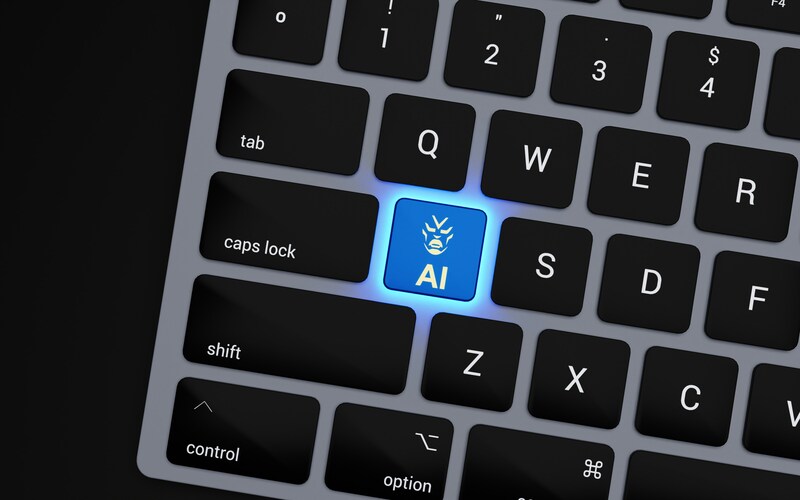The idea of AI began in the 1950s. However, Alan Turing perfected the idea that people can make decisions and solve problems using the stored information and with reason. This idea, however, was difficult to realize until computers, which can store more data, became popular in 1974. Since then, artificial intelligence has made significant progress. In this article, we will explore the artificial intelligence trends that will shape the year 2025 and beyond. We will talk about how AI is implemented in various industries, like the economy, healthcare, business, and security.
1. Democratization of AI Tools
Before the rise and widespread use of AI in recent years, AI was only available to Machine Learning experts. Some companies have also used this technology in the development of their applications and programs. In recent years, however, common people have enjoyed this technology, thanks to the democratization of AI tools.
The democratization of AI tools is the provision of AI to a wider range of users. This is proven by the introduction of AI virtual assistants, like ChatGPT and Gemini. Small businesses that cannot afford to have a full marketing team can also greatly benefit from AI tools, such as AI content creation and digital marketing tools.
To boost social media presence, content creators can use creative AI to generate content without investing in a social media team. They can plan and create content by themselves. Other people can also use AI for their purposes, like collection or photo profiles.

2. Hyper-Personalization Through AI
AI has changed the way we use our favorite apps through personalization. With personalization, it is easy to find learning materials or subjects that match our interests and level, find products based on our behaviors, and recommend to us some content that would likely grab our attention.
Have you stumbled on a product you are looking for the first time to open a marketplace app? Or do you know the term “FYP” on TikTok? They are all the products of hyper-personalization by AI. Due to this hyper-personalized experience, we don’t need to look for things; they look for us instead.
3. AI in the Workplace
The use of AI in the workplace should be one of the artificial intelligence trends we should talk about. ChatGPT might be a huge threat to many people, especially content and copywriters. Just with a simple prompt, ChatGPT can craft any writing in less than a minute. No writer can beat the speed.
We know now, however, that any content created by AI lacks something. This is where employers begin to realize that the human touch is still necessary to refine AI products. Thus, instead of replacing the human workforce, businesses start to use AI to speed up or automate some tasks.
To achieve this, businesses or companies need to open new roles to help automate work, such as prompt engineers, human-AI collaboration specialists, and AI ethicists. While finding AI specialists is still challenging, businesses can reskill and upskill their workforce to prepare for an AI-integrated future.

4. AI in Healthcare and Life Sciences
Can you imagine a collaboration between AI and the healthcare industry? Fast and accurate diagnosis can save many lives suffering from deadly diseases.
Due to its fast response, the industry can now provide personalized treatment. This allows patients to receive treatment according to their overall health and condition, rather than the common practice, which is often not suitable for some people. Researchers struggling to find the best cure for certain diseases can benefit from AI’s ability to analyze and store vast amounts of data.
With its ability to understand patterns, AI can make some predictions. Science can use this ability to predict epidemics, especially in surveillance diagnostics and resource allocation. This technology can help authorities implement targeted quarantines by tracking individuals’ mobility and identifying potential contact with infected individuals.
5. Responsible and Ethical AI
With its ever-developing abilities, AI faces questions regarding bias, accountability, and data privacy. Although it can perform many tasks, there has been no clear explanation of how the massive amount of information is collected and processed before being presented.
AI is a trained machine. If the training data contains prejudices or doesn’t represent all groups, then there is no guarantee that the output will be fully unbiased. Service companies that use automation also need to address their accountability. If the AI they use makes mistakes, who will take responsibility?
Moreover, this technology can mine any data from us, not only personal information, but also behavior and preferences. As consumers, we’re unsure how the company will use our data and how they can protect it from potential scammers. This is where global AI regulation and governance are required. There should be regulations about limiting data collection, transparency in data usage, and increasing security in data protection.
In addition to enacting the regulations, AI developers should guarantee fairness, accountability, and bias mitigation. To do this, Britannica Money proposes using diverse data in training, developing explainable algorithms, regularly auditing the system to monitor bias, and defining and documenting the responsibilities of all stakeholders taking part in developing an AI system.
What other artificial intelligence trends do you think will shape our future?
